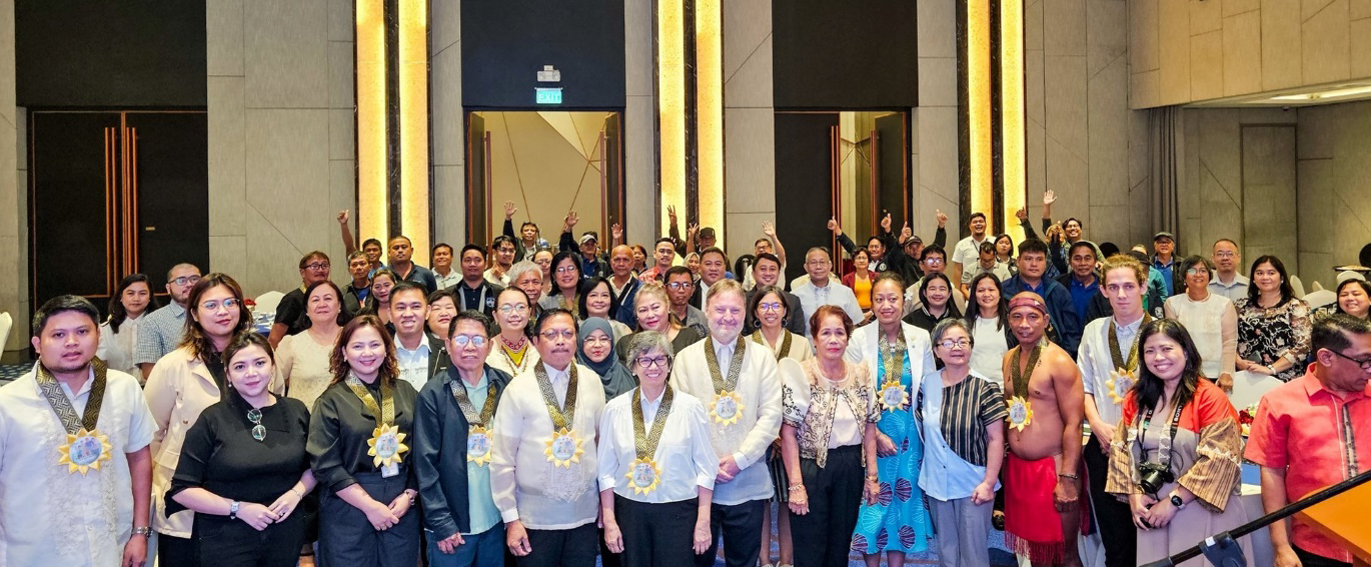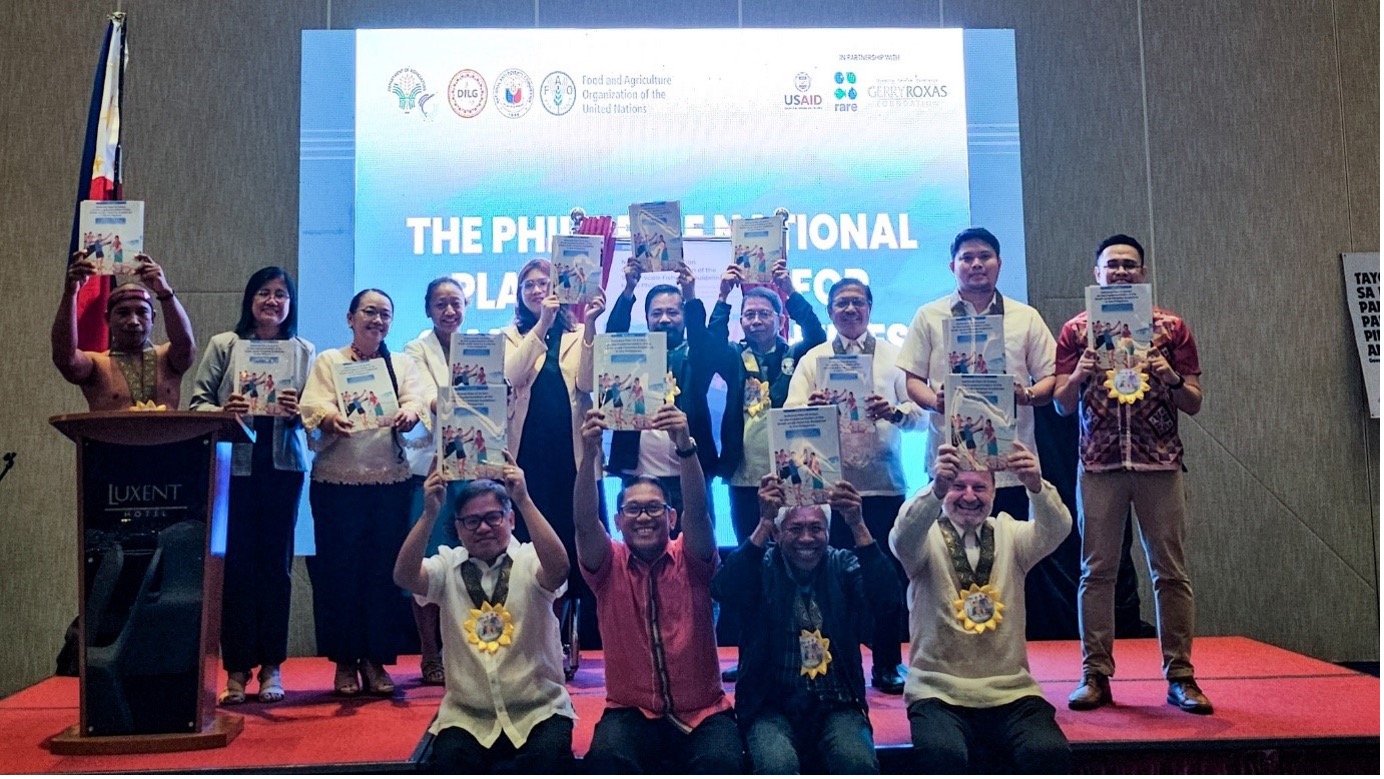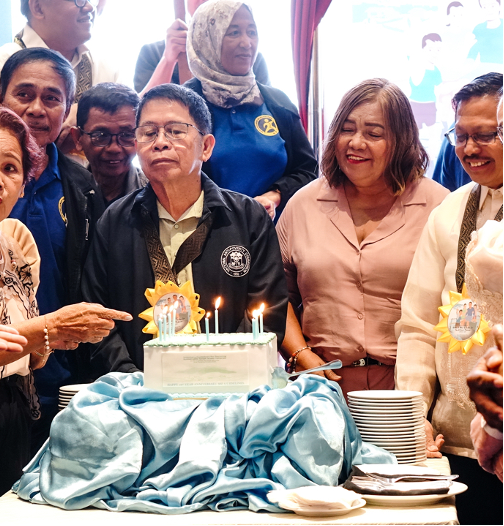Philippines launches the National Plan of Action for Small-Scale Fisheries, the first in Asia

The NPOA-SSF in the Philippines focuses on several priority areas, all of which are aligned with the chapters and recommendations of the Voluntary Guidelines for Securing Sustainable Small-Scale Fisheries in the Context of Food Security and Poverty Eradication (SSF Guidelines): responsible governance of tenure, sustainable resource management and policy coherence, social development, employment and decent work, value chains, post-harvest and trade, gender equality, and disaster risks and climate change. The NPOA-SSF was developed with input from over 250 key stakeholders through six consultation workshops across the country, covering 12 Fisheries Management Areas (FMAs).
FAO Representative Dr. Lionel Dabbadie acknowledged the importance of witnessing the level of participation from the communities to develop this NPOA-SSF and added that “our next step entails that we make sure that this does not remain a plan but goes into implementation. The challenges facing small-scale fisheries are varied and complex. However, with the right partnerships, the right investments, the commitment of all stakeholders, and the framework provided by the NPOA-SSF, I am confident we have everything at our disposal to overcome these challenges”.

The NPOA-SSF has been developed through a collective effort and many stakeholders participated in the process. DA-BFAR and the Department of the Interior and Local Government (DILG) Bureau of Local Government Supervision (BLGS) initiated the process with technical support from FAO. Since 2020, FAO has supported the Philippines through various projects to help implement the SSF Guidelines nationally, including targeted initiatives for specific fishing communities. Partners in this effort include DA-BFAR, DILG-BLGS, Department of Labor and Employment (DOLE), Department of Social Welfare and Development (DSWD), National Anti-Poverty Commission Artisanal Fisherfolk Sectoral Council (NAPC), National Commission on Indigenous Peoples (NCIP), Office of the Civil Defense - National Disaster Risk Reduction Management Council (OCD), Rare Philippines, and representatives from fishing communities.
 | The launch of the NPOA-SSF coincided with the 10th anniversary of the SSF Guidelines, and a celebration happened during the event. The SSF Guidelines are an integral part of FAO’s Blue Transformation Roadmap, which promotes effective management of all fisheries to deliver healthy stocks and secure equitable livelihoods for all. All these are also in support of the United Nations 2030 Agenda for Sustainable Development, as well as the recently adopted Pact for the Future, which also aims to accelerate the achievement of the SDGs, with specific actions dedicated to ending hunger and eliminating food insecurity, as well as scaling up innovation capacities to promote equitable, resilient and inclusive agrifood systems. The NPOA-SSF framework aligns with the SSF Guidelines, adopted by the FAO Committee on Fisheries in 2014. Developed through global consultations, these guidelines combine responsible fisheries management with social development goals, fostering sustainable, equitable, and resilient small-scale fisheries and supporting the communities that depend on them. |
Learn more
